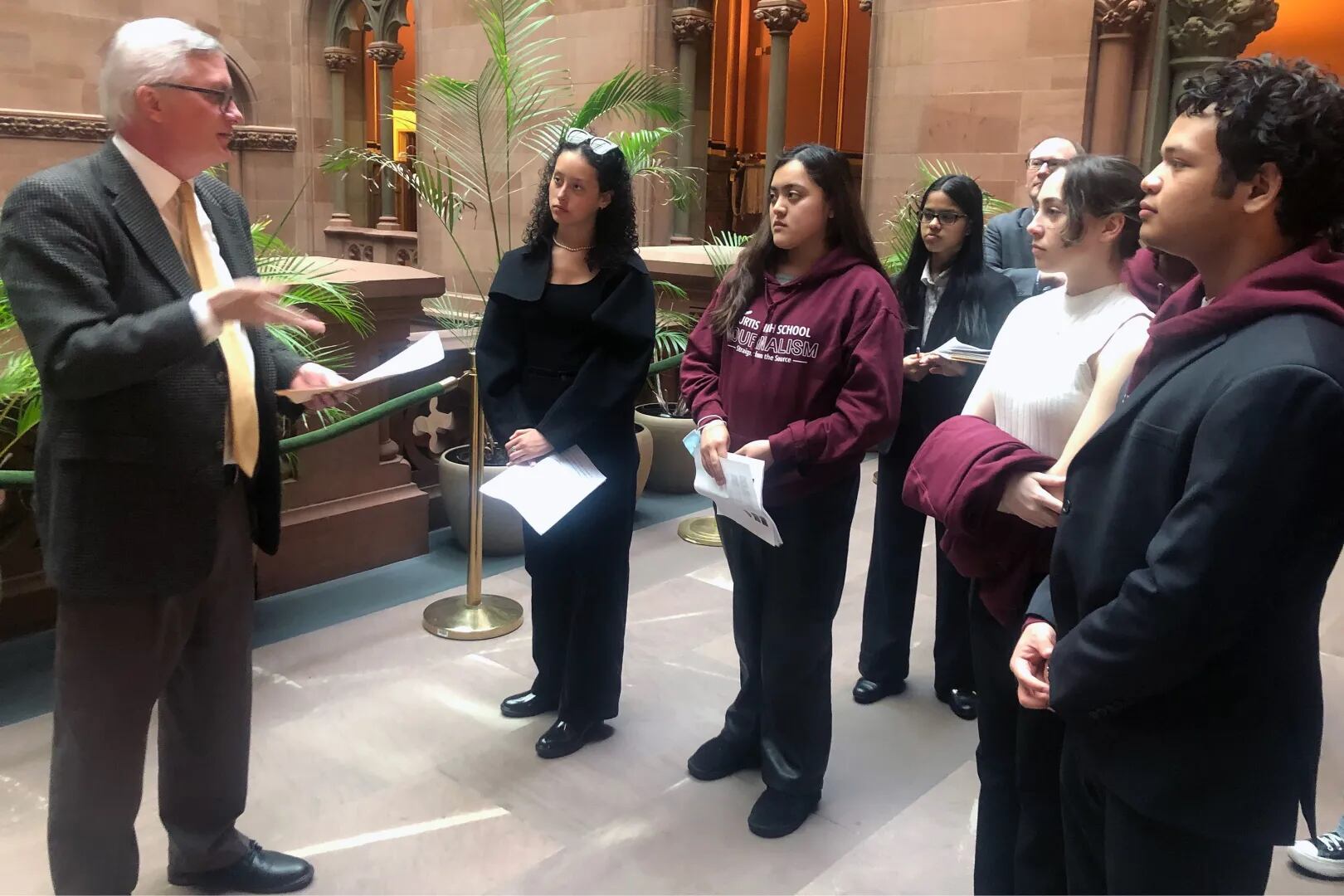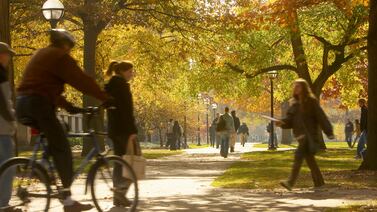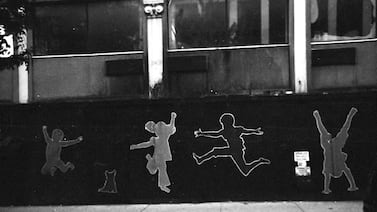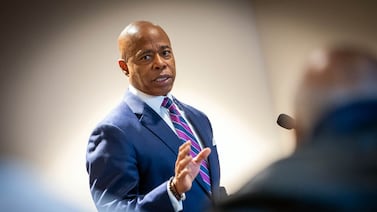This article was originally published on Apr 13 5:00am EDT by THE CITY
Student journalists say they’re tired of being told what they can write about in their school newspapers, with principals and other administrators often limiting political speech or criticisms of the institution.
A bill that would change that by increasing First Amendment protections for young reporters is gaining momentum in Albany this session after nearly seven years of advocacy.
“Unless it’s a really big story, most local papers aren’t gonna be covering high school issues,” said Violetta Atocha, a senior at Clinton High School in Manhattan who traveled to Albany last month with a group of students and advisers pressing lawmakers on the bill. “And so it’s very important for student journalists not to be censored in the same way that it’s important for adult journalists not to be censored.”
Students who spoke to THE CITY said that stories on certain topics like school funding, racial segregation, standardized testing, and mental health were spiked by advisors.
New York City is home to approximately 118 high school newspapers, according to Baruch College’s High School Journalism Program. And amid a diminishing number of professional jobs in local news — down nearly 60% nationally in 10 years by some estimates — student journalists can represent a significant portion of the community information ecosphere.
But the 1988 Supreme Court decision in Hazelwood vs. Kuhlmeier established that high school administrators are constitutionally allowed to censor stories in school-sponsored student newspapers — reversing a lower court decision that recognized high school papers as a “public forum,” and therefore protected under the First Amendment.
Several states later passed laws to enshrine protections for student journalists, but New York is one of 34 that has not, according to the Student Press Law Center.
In February, 53 students organized by New Voices New York, a coalition of young journalists, advisors, and educators from across the state, traveled to Albany to advocate for a bill that would give high schoolers editorial control over their school publications.
The legislation would still bar students from writing anything that “is libelous, an invasion of privacy, or incites students to commit an unlawful act, violate school policies, or materially and substantially disrupt[s] the orderly operation of the school.”
It currently has 46 bipartisan cosponsors in the Senate and Assembly, but has been sitting with the Education Committee in the Senate for four months.
Hot topics
Some students behind the bill say they’ve felt pressure in their city schools.
“It feels like when certain articles are off limits or we’re told not to touch on certain subjects, it’s kind of sending a message from the administration that they don’t really trust us,” said a 16-year-old sophomore from The Bronx who wanted to remain anonymous to maintain good standing with her journalism adviser.
The student said that she first felt the pressure of censorship when her school paper’s adviser refused to publish a piece that revealed how some club activities weren’t fully subsidized by the school, and thus inaccessible to students without enough money.
Around the same time, one of her peers was told they couldn’t write about their own struggles with mental health, she said. Over the course of her first year of reporting, she also found that politically polarizing education topics like the Specialized High School Admissions Test (SHSAT) and racial segregation in elite public high schools would not be approved by her faculty editors.
“We’re told that we go to one of the best high schools and we’re told we can do anything we want,” she said. “But when we propose certain ideas to write about, it’s just completely off the table.”
Of course, not all high school administrators retain strict editorial control over the content of the school papers. Many students from other schools who spoke to THE CITY, including Atocha at Clinton High School, said they experienced great editorial independence from their faculty advisers.
‘Future Custodians of Our Fourth Estate’
A city Department of Education spokesperson declined to comment on the bill specifically, but said the administration supports students’ First Amendment rights, and encouraged any young journalists experiencing restrictions to report it to their district superintendent — or even higher.
“Chancellor [David] Banks and New York City Public Schools strongly support the rights of our students to create their own outlets for self-expression in their schools and make their voice heard,” said department spokesperson Nathaniel Styer. He noted that 20 high school journalists visited the department’s headquarters last year to ask the chancellor questions about their constitutional rights, among other things.
“We’ve had many opportunities as a nation to witness the inherent dangers that accompany efforts to stifle free speech,” said state Sen. Brian Kavanaugh (D-Manhattan), who introduced the legislation. “This bill seeks to empower our student journalists — many of whom will become the future custodians of our Fourth Estate — by allowing them to speak freely and act responsibly.”
A spokesperson for the state department of education said they could not comment on pending legislation. Senate Education Committee Chair Shelley Mayer (D-Westchester) said she was reviewing the bill and couldn’t comment.
In spite of apparent support from various points on the political spectrum, advocates for the protections have struggled to garner momentum in the nearly seven years since the campaign began. One such advocate is journalism educator Katina Paron, who has led advocacy efforts for this bill for years, and has had trouble convincing lawmakers and educators that these protections should be a priority.
“In the past couple years, there was a lot of attention on how the pandemic and remote learning was affecting young people,” said Paron, author of “A NewsHound’s Guide to Student Journalism.” She told THE CITY she’s optimistic about the bill’s future. “A lot of the reporting from that time came from teen journalists talking about their experiences, and that really drove them to understand that they can’t go back to covering pep rallies and blood drives.”
THE CITY is an independent, nonprofit news outlet dedicated to hard-hitting reporting that serves the people of New York.








